Adaptation and validation of the Clinical Nursing Expertise Survey to the portuguese nursing population
Adaptación y validación del Clinical Nursing Expertise Survey para la población de enfermeros portugueses
Adaptação e validação da Clinical Nursing Expertise Survey para a população de enfermeiros portugueses
Antonio Fernando Salgueiro Amaral; Pedro Lopes Ferreira
Abstract
Objective: To validate a reliable and valid measure to evaluate nursing clinical expertise, which could be used to research the contribution of nursing knowledge to the quality of care.
Methods: After permission to translate and use of the Clinical Nursing Expertise Survey, we applied the instrument resulting from the conceptual validation process and the translation/retroversion process.
Results: Response rate ranged between 98.4% and 100% per item. The construct validation process with the factor analysis extracted two factors which explain 74.19% of the variance. The reliability measured by Cronbach's alpha has a value of α = 0.987, on the criteria validation we obtained a significant relationship between CNES and nurse education.
Conclusion: We thus obtained a valid and reliable Portuguese version of CNES which can be used in clinical settings in Portugal.
Keywords
Resumen
Palabras clave
Resumo
Objetivo: Validar uma medida confiável e válida para avaliar a experiência clínica de enfermagem, o que poderia ser usado para pesquisar a contribuição do conhecimento de enfermagem para a qualidade dos cuidados.
Métodos: Após seleção e autorização para tradução e utilização da Clinical Nursing Expertise Survey, aplicamos, em junho de 2012, a uma amostra de enfermeiros, o instrumento que resultou do processo de validação conceitual e do procedimento de tradução/retroversão.
Resultados: Taxa de resposta por item oscilou entre 98,4% e 100%. O processo de validação do constructo, pela análise fatorial, extraiu dois fatores que explicam 74,19% da variância, a fiabilidade medida pelo Cronbach alfa apresenta um valor de α = 0,987, na validação de critério, obtivemos uma relação significativa entre a CNES e a formação dos enfermeiros.
Conclusão: Obtivemos uma versão portuguesa da CNES válida e fiável que pode ser utilizada nos contextos clínicos em Portugal.
Palavras-chave
Referencias
1. Benner P. From Novice to Expert: Excellence and Power in Clinical Nursing Practice. New York (USA): Addison Wesley Publishing; 1984.
2. Lake E. Refinement of the Clinical Nursing Expertise Survey. Resumos de comunicação apresentada no Annual Meeting, American Sociological Association; 2007 aug. 11-14; New York, NY, EUA; 2007.
3. Dunton N, Gajewski B, Klaus S, Pierson B. The relationship of nursing workforce characteristics to patient outcomes. OJIN: The Online Journal of Issues in Nursing, 2007; [cited 2014 may 29]; 12(3). Available in: http://www.nursingworld.org/MainMenuCategories/ANAMarketplace/ANAPeriodicals/OJIN/TableofContents/Volume122007/No3Sept07/NursingWorkforceCharacteristics.html
4. Lake E. Measuring Clinical Nursing Expertise for Outcomes Research. Resumos de comunicação apresentada no State of The Science Congress; 2002 sep. 26-28; Washington, D.C., EUA; 2002.
5. Christensen M, Hewitt-Taylor J. From expert to tasks, expert nursing practice redefined? Journal of Clinical Nursing. 2006; 15(12): 1531-9
6. Aitken LM. Critical care nurses' use of decision-making strategies. Journal of Clinical Nursing. 2003; 12(4):476-83.
7. Hewitt-Taylor J, Melling S. Care protocols: useful tools or rigid rules? Paediatric Nursing. 2004 may; 16(4):38-42.
8. Day L. Evidence-Based Practice, Rule-Following and Nursing Expertise. American Journal of Critical Care. 2009 sep.; 18(5):479-82.
9. Aiken L, Havens D, Sloane D. The Magnet nursing services recognition program; a comparison of two groups of Magnet Hospitals. J Nurs Adm. 2009 jul/aug; 39(7-8 Suppl): S5-14.
10. Benner P, Tanner C. Clinical judgment: how expert nurses use intuition. Am J Nurs. 1987 jan; 87(1):23-31.
11. McHugh MD, Lake ET. Understanding Clinical Expertise: Nurse Education, Experience, and the Hospital Context. Res Nurs Health. 2010 aug; 33(4): 276-87.
12. Bobay K, Gentile DL, Hagle ME. The relationship of nurses' professional characteristics to levels of clinical nursing expertise. Appl Nurs Res. 2009 feb; 22(1):48-53.
13. Blegen MA, Vaughn TE, Goode CJ. Nurse experience and education: Effect on quality of care. J Nurs Adm. 2001 jan; 31(1):33-9.
14. Clarke SP, Rockett JL, Sloane DM, Aiken LH. Organizational climate, staffing, and safety equipment as predictors of needlestick injuries and near-misses in hospital nurses. Am J Infect Control. 2002 jun; 30(4):207-16.
15. Aiken LH, Clarke SP, Cheung RB, Sloane DM, Silber JH. Educational levels of hospital nurses and surgical patient mortality. JAMA. 2003 sep; 290(12): 1617-23.
16. Benner P. Using the Dreyfus Model of Skill Acquisition to describe and interpret skill acquisition and clinical judgment in nursing practice and education. The Bulletin of Science, Technology and Society. 2004 jun; 24(3): 188-99.
17. Bonner A. Recognition of expertise: an important concept in the acquisition of nephrology nursing expertise. Nurs Health Sci. 2003 jun; 5(2): 123-31.
18. Maroco J. Análise Estatística com utilização do SPSS. Lisboa (POR): Edições Sílabo Lda; 2007.
Submitted date:
27/05/2013
Reviewed date:
12/03/2014
Accepted date:
19/03/2014



